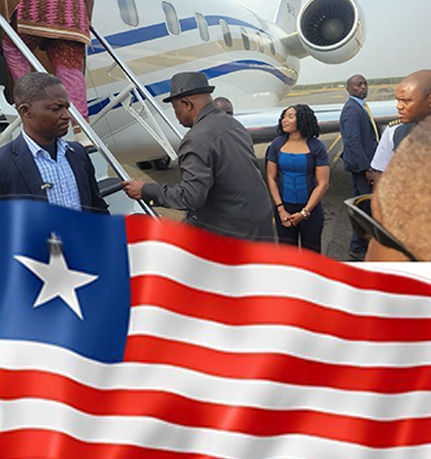Entire “Rescue government” abandons Flag Day celebration
- Michael T
- Aug 25, 2025
- 2 min read

Liberia’s highest government officials, including President Joseph Boakai, Vice President Jeremiah Koung, and other top leaders, were collectively absent from the official Flag Day ceremony on August 25, 2025—a rare break with civic tradition that left the national celebration without its customary display of leadership presence.
Flag Day is one of Liberia’s most cherished national holidays, commemorating the adoption of the Liberian flag in August 1847, just one month after the country’s independence. The flag, designed by a pioneering committee of Liberian women, stands for unity, sacrifice, and sovereign identity, serving as an annual focal point for national pride and reflection.
The 1915 Act governing Flag Day requires closure of public offices and official events to highlight the day’s national importance, but attendance by top officials—while not mandated by law—has become a protocol rooted in tradition and public expectation.
This year, with Flag Day observed on August 25 (August 24 fell on a Sunday), Liberia’s senior-most officials—President Boakai, Vice President Koung, Speaker Koon, Pro Tempore Lawrence, and Chief Justice Gbeisay—did not attend the ceremony. Their absence delivered a message well beyond mere scheduling oversight.
Recent patterns reveal repeated non-attendance at other key civic rituals, including the farewell ceremony for outgoing Chief Justice Sie-A-Neh Youh, for which neither the president, vice president, nor the Justice Minister (dean of the Supreme Court’s bar) were present—a notable breach of professional and civic expectations.
Past administrations recognized the importance of such events for fostering unity and legitimacy. Former President Ellen Johnson Sirleaf made it a point to ensure executive presence, even under political pressure, emphasizing the role of public ritual in national cohesion. George Weah’s administration was likewise visibly engaged, using occasions like Flag Day to affirm leadership and inspire confidence in national values.
The collective disengagement by the current administration signals a broader withdrawal from long-standing civic obligations. In a country facing questions of trust, unity, and legitimacy, such absence weakens morale and erodes public confidence—especially among youth searching for models of leadership and belonging. Rituals like Flag Day depend on more than symbolic gestures; they require an active reaffirmation of commitment from those in power.
In public life, repeated absence can be as forceful as any declaration or act, shaping perceptions of responsibility and dedication to national values.
________________________________________
Get Involved
Do you have additional facts to add to this insight or an opinion you would like to express?
Email Us




Comments